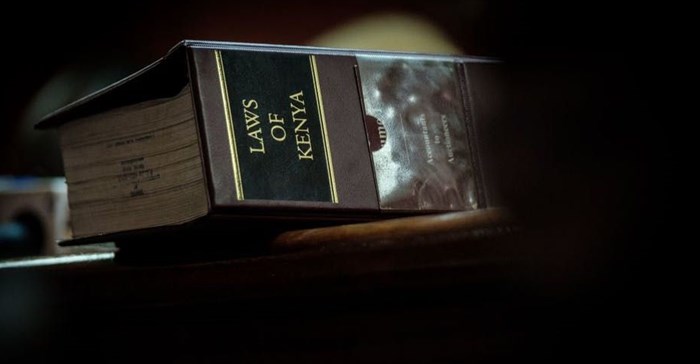Kenya is struggling to deliver justice online: what needs to be done

With judicial services scaled down, priority was given to applications that the courts deemed to be urgent. The immediate result was that those who couldn’t demonstrate urgency could not access the court system. Access to justice was also impeded by rolling curfews imposed to limit the spread of Covid-19.
Nor was the limited rollout of information technology good enough. This led to the Law Society of Kenya immediately petitioning before court. It argued that courts offer a dispute resolution service to the public without discrimination. They must therefore operate uninterrupted so as to check against excesses by the executive and reinforce the principle that there is no temporary suspension of the rule of law and principle of legality.
To this end, the law society argued, legal services should be declared an essential service.
The court ruled in the society’s favour. The ruling meant that lawyers would have unrestricted movement to access clients and court services. They would also be able to traverse the country and access areas under lockdown.
As a result of the ruling there was an increase in the number of court sessions and tribunal hearings. Registry services also resumed. The justice council, led by the chief justice, also ordered the presentation of suspects in court within 24 hours of arrest as required by law.
But the question remains as to whether all Kenyans are now able to access justice as they did before the Covid-19 outbreak. Especially if we take into consideration that Kenya’s internet coverage is unevenly distributed. For Kenyans to access the judiciary, they need to be in a region where there is electricity and internet coverage. In the rural or upcountry areas, there is an issue with the internet. Proper technology infrastructure should be installed to increase internet coverage. This infrastructure is paramount to improve access for Kenyans to the judiciary.
Adoption of a digital judiciary
The judiciary functions to safeguard the rule of law, equality and justice with minimal delay. It’s required to provide mechanisms for all the litigant classes to access its services.
The Kenyan judiciary has sought to address this partly by operating temporary open-air courts in strategic places where social distancing can be observed.
In July, the chief justice launched an e-filing system which enables litigants to file and track their cases. The judiciary also conducts virtual court sessions with prisoners through video link sessions for matters such as bail and plea taking.
Most proceedings are taking place on online platforms. Typically, court clerks send Skype, Zoom, or Microsoft Teams links for a court session to the parties involved. The litigants turn up at an appointed time and the application hearing takes place. In areas outside Nairobi metropolis, some courts are allocating litigants time slots to attend matters within the court premises.
Before the pandemic, higher courts, including the Supreme Court, had already put in place guidelines allowing for digital proceedings. The guidelines allow for the filing of applications and submissions via email and the judgement is posted to the participants.
But there are challenges. Most people do not have access to or familiarity with the technology in use by the courts. Typically, one requires access to a computer, a good internet connection and electricity. Depending on location, these requirements disadvantage a large number of people, especially in rural regions.
Self litigants are likely to face challenges with the new e-filing platform because the system is geared for represented litigants. The system requires one to register a case using a law firm or lawyer. The legal documents earlier prepared are uploaded and court filing fees paid. The litigant then awaits the activation of the court file to be granted court audience. This means that if litigants cannot find a lawyer or understand the legal terminologies, they won’t be able to access the judiciary.
All these could add to a huge judicial backlog. Currently, the earliest court dates for new hearings are available from 2021. Businesses that have been heavily affected by the Covid-19 pandemic will not be able to receive relief soon and might lose hope in the judicial system.
Way forward
For the judiciary to become fully digital it needs an everyday court management system of judges. This would be supported by an electronic filing and court management system for judicial officers and litigants. Such a system must be user friendly to self-represented consumers.
Underpinning all these is an electronic filing system that safeguards against cyber attacks. This is the case in the UK and the US, where disputes can be settled online. They already have e-filing and case management systems that are efficient and well utilised with accountability and authenticity processes.
Kenya needs not just the necessary laws and regulations but the information and communication technology infrastructure. For example, there should be cyber security software and hardware free from software tagging. It also needs institutional capacity to monitor its use by litigants, the judiciary and the public prosecution office.
This article is republished from The Conversation under a Creative Commons license. Read the original article.![]()
Source: The Conversation Africa

The Conversation Africa is an independent source of news and views from the academic and research community. Its aim is to promote better understanding of current affairs and complex issues, and allow for a better quality of public discourse and conversation.
Go to: https://theconversation.com/africaAbout Mercy Muendo
Mercy Muendo, lecturer, information technology and the law, Daystar UniversityRelated
Retail becomes a data powerhouse as it turns into a dominant ad platform 5 Feb 2025 Virgin Active’s new campaign Leave the cult, Join the club cuts through wellness fiction 25 Sep 2024 Global excellence in B2B journalism: All the 2024 Tabbie Awards winners 2 Sep 2024 #DStvCCA: The 2024 DStv Content Creator Awards nominees announced 19 Aug 2024 Zando collabs with Brick Up Africa to offer Lego products in SA 16 Jul 2024 South African online shoppers favour fashion and food in digital cart 15 Jul 2024























